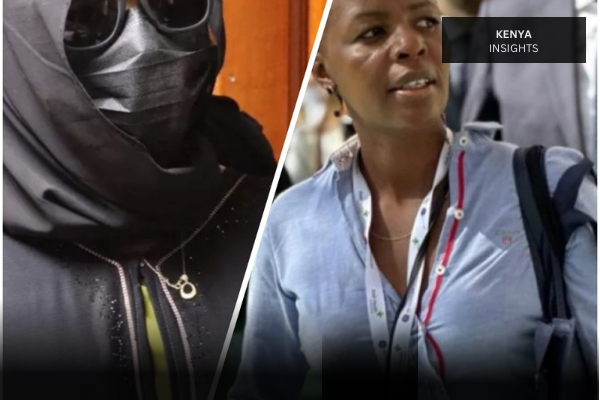In a tale that reads like a blockbuster scam, Faith Mwikali Ndiwa, a Kenyan woman from the Kamba community, is accused of defrauding a foreign national out of Ksh. 25 million.
Ndiwa’s arrest has lifted the lid on a sophisticated con operation, revealing a web of deceit, forged documents, and audacious claims.
Ndiwa also faced eight counts of forgery, uttering false documents, and obtaining money by pretenses. She pleaded not guilty to all charges.
The Con Unfolds
According to detectives, Ndiwa’s arrest in May 2022 stemmed from her bold move to walk into Guarantee Trust Bank and request a meeting with the CEO.
She claimed to have Ksh. 70 million in her account and sought financial advice. This encounter was just the tip of the iceberg in Ndiwa’s elaborate scheme.
The court heard that Ndiwa used her two companies, Ashley Dylan Limited and Faizel Limited, to secure a fraudulent tender to supply Long Lasting Insecticidal Nets (LLINs) to the Kenya Medical Supplies Authority (KEMSA).
She allegedly forged a Framework Contract between KEMSA and her company, Ashley Dylan Limited, making it appear as a genuine agreement.
The Fraudulent Tender
The alleged fraudulent activities took place between June and December 2022 within Nairobi County.
Ndiwa is accused of forging and uttering a document purporting to be an amendment to the KEMSA contract, using it to convince Veracruz of the deal’s legitimacy.
She allegedly presented this document to Veracruz in June 2022, securing Ksh. 25 million.
In a bid to prevent her release on bond, police constable John Okoth, attached to the Directorate of Criminal Investigations (DCI) Nairobi Area, described Ndiwa as a flight risk.
He explained that Ndiwa had been on the run since 2022 and was difficult to apprehend. Okoth revealed that he used Ndiwa’s associates to track her down, leading to her eventual arrest.
Is Faith Mwikali a flight risk?
Okoth’s affidavit painted Ndiwa as a cunning fugitive. He claimed she had no known place of residence and had refused to disclose her whereabouts to the police.
Moreover, Ndiwa possessed a passport and had traveled in and out of the country, raising concerns that she might flee if released on bond.
“The accused refused to disclose to my team where she resides. She has a passport, and we have realized that she has been in and out of the country, and we fear she can escape,” Okoth told the court.
Defense’s Plea
Ndiwa’s defense lawyer argued passionately for her release on bond, asserting that it was her constitutional right.
He dismissed the flight-risk claims, stating that having a passport did not prove she intended to flee.
The lawyer further argued that the complainant, Veracruz, was Ndiwa’s husband, making the case a matrimonial issue rather than a criminal one.
“Your honor, the complainant and the accused in this matter are lovers, husband and wife, and this is a matrimonial issue,” the defense lawyer contended.
He also claimed that Ndiwa had voluntarily presented herself to the police, indicating her willingness to comply with court orders.
The magistrate, however, requested a pre-bail report before making a decision on whether to grant bond.
A Glimpse into the Scam
Ndiwa’s case shines a light on the complexities of modern-day fraud.
Her audacious approach, including walking into a bank CEO’s office and presenting forged documents, demonstrates the lengths to which con artists will go to deceive their victims.
The case also highlights the challenges faced by law enforcement in tracking and apprehending such individuals.
As Ndiwa waits in detention at Capitol Hill Police Station, the court prepares to make a ruling on her bond terms.
The pre-bail report will provide crucial insights into her character and flight risk, influencing the court’s decision.
Wrapping Up
This case highlights the need for vigilance in financial dealings. Ndiwa’s actions defrauded Veracruz and damaged trust in legitimate business practices.
As the investigation continues, authorities hope justice will be served and such fraud schemes will be stopped.
Ndiwa’s case shows the growing sophistication of scams. It urges individuals and institutions to verify business deals carefully.
The outcome of this case will likely set a precedent for handling similar cases, emphasizing the importance of combating financial fraud.








